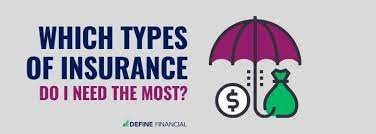Smart Tax Strategies for Small Business Owners- Maximizing Deductions and Minimizing Liability
As a small business owner, taxes can be a significant financial burden. However, there are ways to minimize your tax liability and maximize your deductions by using intelligent tax strategies. This article discusses some of the best tax strategies for small business owners.
1. Keep accurate records
Keeping accurate records is critical to any small business owner. It allows you to keep track of your income and expenses and ensures you claim any deductions to which you are entitled. Various software tools are available to help you keep track of your finances, or you can hire a professional accountant to manage your books.

2. Take advantage of deductions
Small business owners are entitled to several deductions, significantly reducing their tax liability. Some of the most common deductions are:
● Home office deduction
● Depreciation deduction
● Business travel expenses
● Business-related meals and entertainment
● Health insurance deductions
Make sure you research all available deductions and talk to a tax professional to make sure you take advantage of every possible deduction.
3. Retirement Planning
Even small business owners can benefit from tax-advantaged retirement accounts. Funding a retirement account can reduce your taxable income and save you for the future. Some of the most popular retirement accounts for small business owners are:
● Employee Simplified Pension Plan (SEP) IRA
● Solo 401(k)
● Simple IRA
● Individual Retirement Accounts (IRAs)
Consult a financial advisor to determine which retirement account is best for your business.
4. Hire family members
Hiring family members can be a smart tax strategy for small business owners. By engaging your spouse or children, you can take advantage of deductions from their wages and benefits. Consult a tax professional to ensure you comply with all relevant tax laws and regulations.

5. Integrate your business
Starting a business can also provide tax benefits to small business owners. This allows you to separate your personal and business finances and benefit from various tax deductions and credits. Talk to an accountant or lawyer to determine which type of company is best for your business.
6. Make a charitable donation
Charitable giving can also provide tax benefits to small business owners. If you donate to a qualifying charity, you can claim a tax deduction on your business tax return. Be sure to keep accurate records of all charitable contributions and consult a tax professional to ensure you comply with all relevant tax laws and regulations.
7. Take advantage of tax credits
Small business owners can also use various tax credits to reduce their liability. Some of the most common tax credits are:
● R&D tax credits
● Job Opportunity Tax Credit
● Small Business Health Care Tax Credit
● Deductions for energy-efficient commercial buildings
Research the tax credits available and talk to a tax professional to determine which ones apply to your business.
Diploma
Innovative tax strategies are essential for small business owners looking to minimize their tax liability and maximize their deductions. By keeping accurate records, using deductions and tax credits, planning for retirement, hiring family members, starting a business, making charitable giving, and consulting a tax professional, you can do everything you can to reduce your tax burden. With the right tax strategy, you can focus on growing your business and achieving your financial goals.











